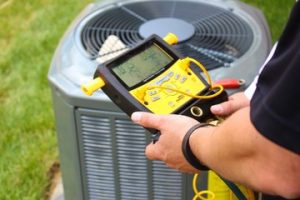24 Hour HVAC Company ensures that indoor environments remain comfortable at all times. Heating, ventilation, and air conditioning systems are crucial for daily living and workspaces. When these systems fail unexpectedly, they can disrupt comfort, safety, and even productivity. Having access to round-the-clock service eliminates long waits and uncertainty.

Modern climate control systems are more advanced than ever. They use sensors, programmable controls, and energy-efficient components to maintain consistent conditions. While these innovations improve comfort, they also introduce complexities in repair and maintenance. Technicians must be trained to work with both traditional and high-tech systems.
Emergencies can happen at any time, from sudden breakdowns during extreme weather to unexpected malfunctions overnight. A 24 hour HVAC company provides peace of mind by responding quickly, regardless of the hour. This rapid service can prevent small issues from escalating into major problems.
The demand for continuous HVAC support has grown alongside technological advancements. Many businesses operate around the clock and cannot afford downtime in climate control. Restaurants, medical facilities, and manufacturing plants often require stable temperatures to function effectively. A service that operates all day meets these critical needs.
Energy efficiency is another important focus for modern HVAC services. Technicians not only fix immediate issues but also optimize system performance. They may recommend adjustments or upgrades that lower energy consumption without compromising comfort. This helps customers save money and supports environmental sustainability.
A 24 hour HVAC company often uses remote monitoring tools to detect issues before they become severe. Sensors can alert technicians to temperature fluctuations, airflow restrictions, or system errors. This allows for faster diagnosis and targeted repairs. The result is less downtime and fewer costly breakdowns.
Indoor air quality is a growing concern, and HVAC systems play a central role in maintaining it. Around-the-clock services ensure that filters, ductwork, and ventilation systems function properly. Poor air quality can affect health, especially for those with allergies or respiratory conditions. Immediate attention to ventilation issues helps prevent these risks.
Seasonal changes place extra stress on HVAC systems. The transition from heating to cooling or vice versa can reveal hidden problems. A 24 hour service allows for quick adaptation during these shifts. Customers benefit from consistent comfort without waiting for normal business hours.
Some customers require emergency installations rather than just repairs. A sudden failure may necessitate replacing a unit entirely. In such cases, having a company that can perform installations at any hour reduces disruption. This service is especially important for businesses that rely on controlled temperatures.
Maintenance remains a key factor in preventing emergencies. Many 24 hour HVAC companies offer scheduled checkups along with their emergency services. Routine inspections identify worn parts, refrigerant issues, or electrical problems early. This approach helps extend the life of the system and reduces long-term costs.
The technicians working for these companies must be versatile and well-trained. They may handle complex commercial systems one moment and residential units the next. This variety requires strong problem-solving skills and adaptability. Experience plays a major role in delivering effective, timely solutions.
Customer communication is essential in emergency HVAC service. Technicians must explain problems clearly and offer practical solutions. This transparency builds trust and ensures that clients understand their options. Even in urgent situations, informed decision-making benefits everyone involved.
The use of mobile technology has streamlined emergency response. Dispatch systems can locate the nearest available technician and send them to the site quickly. Real-time updates keep clients informed about arrival times and progress. This level of coordination improves overall service quality.
Weather conditions often influence the urgency of HVAC repairs. Extreme heat or cold can create hazardous environments indoors. A 24 hour HVAC company helps protect both comfort and safety during these times. Fast repairs reduce the risk of heat exhaustion, freezing, or other weather-related health issues.
Businesses that store temperature-sensitive products rely heavily on rapid HVAC support. In industries like food production or pharmaceuticals, even brief temperature changes can cause losses. Emergency service prevents waste and ensures compliance with safety standards. This reliability becomes a valuable asset for commercial clients.
The growth of smart home and building technology has added another dimension to HVAC work. Technicians must understand how to integrate heating and cooling systems with digital controls and mobile apps. This combination of electrical, mechanical, and software expertise sets modern services apart.
For homeowners, a 24 hour HVAC company offers reassurance during unexpected breakdowns. Families can maintain a comfortable living space without waiting until morning. This immediate care also prevents secondary damage, such as frozen pipes during winter. Reliable service supports both comfort and home protection.
Environmentally conscious clients often seek eco-friendly repair and replacement options. Around-the-clock HVAC services can install high-efficiency systems that reduce carbon impact. They may also advise on adjustments that improve sustainability without sacrificing performance. This aligns with modern energy goals and consumer preferences.
The work environment for HVAC technicians can be challenging, especially in emergency conditions. They may need to work in tight spaces, on rooftops, or in extreme weather. Physical stamina and attention to safety protocols are essential. Despite these demands, the satisfaction of restoring comfort keeps many motivated.
Training and certification are vital for staying current with industry changes. New refrigerants, energy regulations, and smart technologies require ongoing education. A 24 hour HVAC company that invests in its technicians’ growth ensures better service for clients. Skilled, knowledgeable staff are the foundation of reliable emergency support.
Preventive advice is often given alongside repairs. Technicians may recommend thermostat settings, filter changes, or insulation improvements. These small adjustments can reduce the likelihood of future emergencies. Clients benefit from both immediate solutions and long-term reliability.
The future of HVAC service is likely to include even greater integration with automated systems. Remote diagnostics and predictive maintenance may become standard. A 24 hour HVAC company will be positioned to respond instantly when systems flag potential failures. This proactive approach will redefine what emergency service means.
In the end, the value of a 24 hour HVAC company lies in its ability to combine expertise, speed, and reliability. Whether for homes or businesses, the comfort and safety provided are essential. As technology evolves, so will the capabilities of these services. The commitment to uninterrupted support ensures they remain a vital part of modern living.
